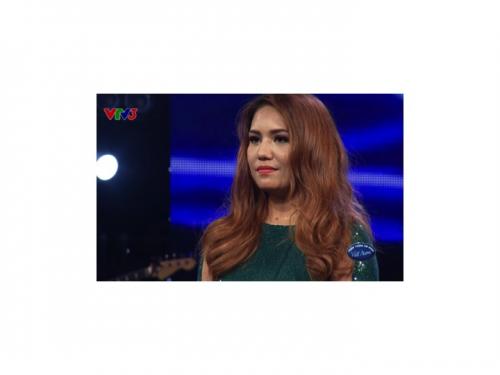Janice, Philippines Native, Wins Vietnam Idol

Janice, Philippines Native, Wins Vietnam Idol
On September 30th 2016, Janice Phuong from the Philippines won the 7th season of Vietnam Idol. It was the first season that “foreigners,” non-Vietnamese singers, could enter the contest. Note that Janice’s real last name is actually Buco. She was given the Vietnamese last name “Phuong” by the judges of Vietnam Idol. Although born in Bohol province in the Philippines, Buco has lived in Vietnam since 2009 with her Vietnamese husband.
Before she won, Buco and her husband made a living by performing at bars and clubs in Hanoi. While Vietnam Idol allowed foreigners to compete, they mandated that all competitors had to sing in Vietnamese. So for her audition, Phuong sang a Vietnamese song and because she was competing against local singers, had to train intensively and even stopped working for three months to improve her Vietnamese.
Besides the language obstacles, Phuong faced some discrimination for being a “foreigner” in a Vietnamese singing competition. As she isn’t fluent in Vietnamese, some “bashers on social media” told her “to go back to the Philippines and sing there.” Buco was actually surprised that she beat out the runner up, Viet Thang, because well, Thang is Vietnamese and Buco isn’t.
I actually found out that Buco won Vietnam Idol on a Vietnamese news website, báomới.com. (http://en.baomoi.com/Info/Filipino-singer-wins-2016-Vietnam-Idol/4/62819...) It was a brief article relaying basic information: how much Buco won by, her monetary prize, and a bit about Vietnam Idol itself, but I noticed that throughout the four paragraphs, they referred to Janice by her Vietnamese last name Phuong. I wanted to see how and if a Filipino news outlet covered Buco’s victory so I went to the Phillippine Daily Inquirer’s website. (http://globalnation.inquirer.net/145968/filipino-housewife-is-vietnam-idol) The article I found was entitled “Filipino housewife is ‘Vietnam Idol’” I had some qualms with the title as “housewife” seemed like an unnecessary term seeing how Buco isn’t a housewife, she performs with her husband for a living, and it’s irrelevant to the fact that she won. (We see this in American media as well: successful women painted as a “housewife” or called someone’s wife instead of referring to them by their given name.) I also noticed how Julie Aurelio, the reporter, referred to Janice by her given Filipino last name, Buco, throughout the piece. Aurelio also went into more detail about the discrimination Buco felt for being a “foreigner,” something the Báomới article didn’t do.
I find Buco’s victory interesting, maybe even significant for several reasons. Vietnam Idol had the opportunity to rig the results so that a Vietnamese competitor could win (Buco received 54% of the votes- it was close), but they chose to let a “foreigner” win. Perhaps this shows an effort to be more modern: welcoming outsiders to Vietnam. But giving Buco a new last name is also an interesting move and “de-foreign-izes” her in a way such that she becomes Vietnamese. I wonder if Buco pushed back on this, or was just grateful to compete at all. Is this assimilation? For her final "victory song" Buco sang "Hello Vietnam." I read the song's lyrics (English translation) and it seems very patriotic and promotes Vietnamese nationalism. Does Buco feel Vietnamese or is this just a way to earn the approval of fans?
I also like the pointed difference between the reporting on the Filipino and Vietnamese sides. One referred to Janice as Buco & wrote about the discrimination while the other one referred to her as Phuong and made no mention of how difficult the experience was at times. But both articles remind me of the fact that there isn’t a single common language in the territories known as Modern South East Asia. But as long as these 11 countries are grouped together, I wonder if there will ever be a day when one language is common and spoken throughout (besides English). Is it necessary? One last point to make is that Vietnam Idol is based off American Idol. It’s a clear example of how outside international influences have infiltrated Vietnamese mainstream culture.